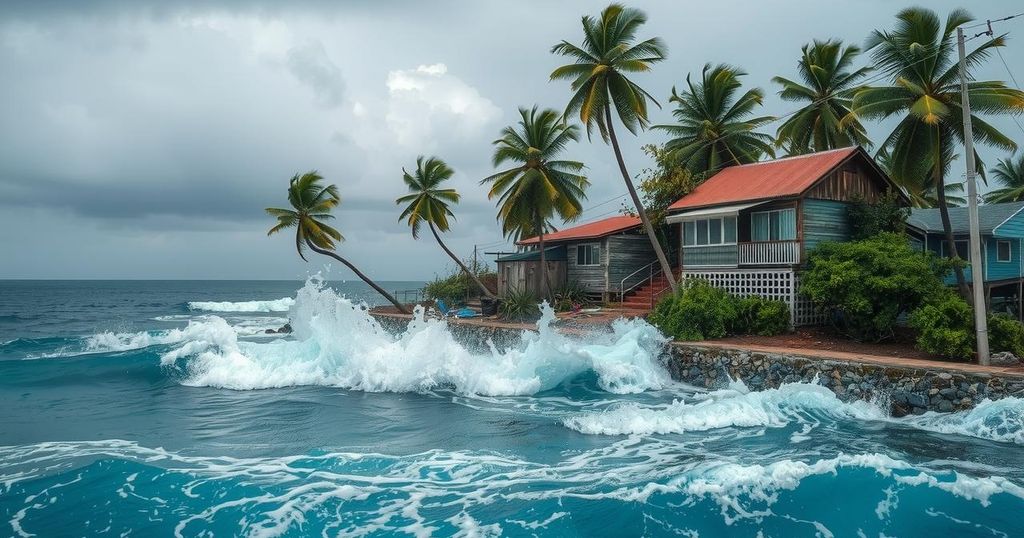On December 14, cyclone Chido lashed Mayotte with devastating winds exceeding 200 km/h, causing significant destruction and loss of life. The storm marked the strongest impact in 90 years, raising concerns about climate change and preparedness in the region. Efforts are underway for relief and recovery while future cyclone activity is anticipated to increase in the South-West Indian Ocean.
Tropical cyclone Chido struck the island of Mayotte on December 14, registering wind speeds exceeding 200 km/h and gusts surpassing 225 km/h. This severe storm, deemed the strongest to affect Mayotte in over 90 years by Météo-France, also brought torrential rains, with 176 mm recorded within 12 hours, along with perilous sea conditions characterized by average wave heights exceeding 5 meters. The cyclone’s intensity led to the destruction of some of Météo-France’s observational structures.
In the wake of the cyclone, French President Emmanuel Macron proclaimed national mourning, and extensive emergency response efforts were initiated due to early warnings suggesting potentially high casualty figures on the island. This scenario was exacerbated by the prevalence of informal housing structures, which are ill-equipped to withstand such violent storms despite Météo-France’s issuance of timely alerts over 50 hours prior to landfall.
Chido’s trajectory was unusual as it bypassed large Madagascar, which could have mitigated its strength. Instead, it made landfall over Mayotte as a powerful tropical cyclone, overwhelming the island entirely. After impacting Mayotte, Chido continued on to Mozambique on December 15, leading to heavy rainfall in both Mozambique and Malawi.
Météo-France clarified that while the cyclone’s effects were notably attributed to its direct impact on Mayotte, the specifics regarding the influence of climate change remain ambiguous. They stated, “Our current state of knowledge doesn’t allow us to draw any conclusions about the role of climate change on the track of the cyclone and on its intensity.” Furthermore, their seasonal forecast issued on October 31 predicted an earlier start to the cyclone season in 2024-2025 than usual, suggesting an expected increase in activity in the region.
Tropical cyclones pose significant threats to coastal regions, leading to devastating impacts on lives and infrastructure. The 2024-2025 cyclone season in the South-West Indian Ocean has been highlighted as potentially more active than previous years due to changing climate patterns. Météo-France, as a Regional Specialized Meteorological Centre for the WMO, is at the forefront of cyclone prediction and is instrumental in alerting regions to impending storms. Their analyses and early warnings are crucial for preparedness, particularly in areas like Mayotte that are not accustomed to such severe weather events.
In summary, cyclone Chido’s unprecedented strength devastated Mayotte, marking an extraordinary event in the region’s meteorological history. The cyclone’s trajectory and impacts reflect the unpredictable nature of tropical storms, particularly in areas unaccustomed to such phenomena. This event underscores the importance of ongoing research into climate change and its potential influences on cyclone behavior, as well as the need for robust early warning systems to protect vulnerable populations in the future.
Original Source: wmo.int






